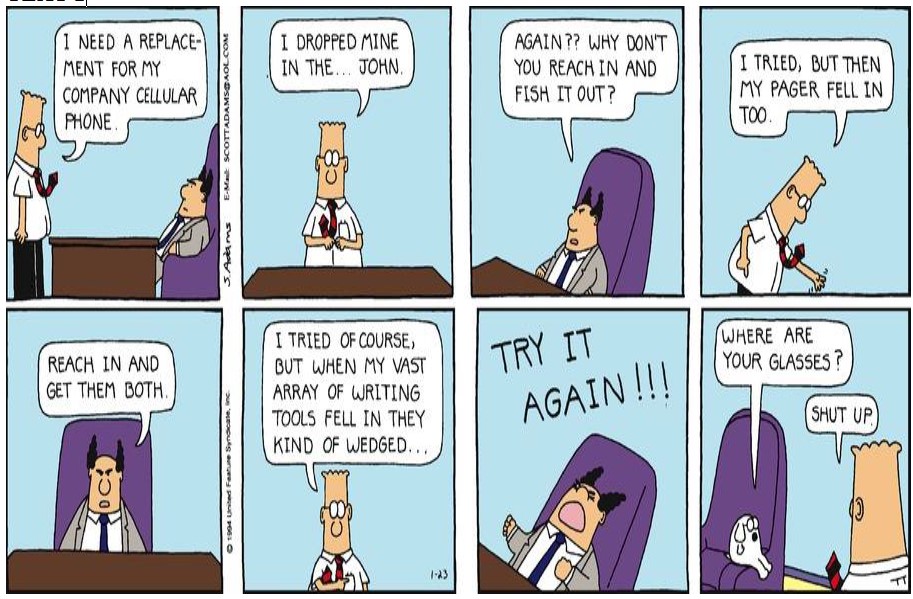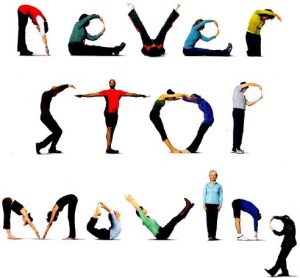Imperative orders: como usar modo imperativo no Inglês
Revise o Imperative, um modo verbal que pode aparecer no Enem e nos vestibulares. Aprenda mais este conteúdo de Inglês para melhorar sua interpretação de texto!
Quando falamos de tensões verbais, não podemos esquecer do imperative form, ou modo imperativo no Inglês. O imperativo, tanto no Inglês quanto no Português, funciona de maneira parecida, servindo a mesma função nas duas línguas. No entanto, precisamos destacar alguns detalhes e diferenças. Vem com a gente revisar inglês para mandar bem no Enem e nos vestibulares!
O que são imperative orders
As imperative orders são o modo verbal usado para dar ordens no Inglês. De maneira bem simples, vamos ver alguns exemplos no português e fazer o paralelo com a língua inglesa:
- Lave a louça.
- Limpe o quarto.
- Fique quieto.
Podemos notar a ideia de imposição de ordem nos três exemplos anteriores. Agora vamos passar os exemplos acima para o inglês:
- Wash the dishes.
- Clean your room.
- Be quiet.
Com essas frases já conseguimos definir algumas coisas. Por exemplo, observe que todas elas começam diretamente com o verbo, a ação, a ordem propriamente dita. Não começamos com sujeito, como seria na maioria das frases do inglês.
Inclusive, precisamos notar que nas frases construídas no modo imperativo no Inglês não há sujeito! Esse é um caso muito raro no inglês, já que normalmente a presença de sujeito é obrigatória. Assim, a oração começa diretamente com o verbo principal.
Além disso, o verbo principal não está conjugado. Como não há sujeito, ele fica na sua forma bruta, sem nenhuma modificação. Podemos dizer então que o verbo está no infinitivo.
Estrutura do imperative
Assim já definimos a estrutura do modo imperativo no inglês:
[Verbo no infinitivo]
(Sem sujeito)
É possível uma frase ter apenas o verbo, então, e mais nada? Sim! Veja a frase abaixo:
Corra!
Run!
A frase acima possui nada mais do que um verbo, e ele já indica ordem.
Imperativo negativo
Agora que já vimos alguns exemplos, vamos transformar a frase. Acabamos de dar algumas ordens afirmativas, certo? Mas como seria se quiséssemos dar ordens negativas, ou seja, mandar alguém NÃO fazer alguma coisa? Seria como proibir alguém de fazer algo.
Para frases negativas, seguimos a regra geral, que serve para qualquer tensão verbal. Colocamos a partícula negativa “not” depois do 1º auxiliar da frase.
Como a frase não possui auxiliar (alguma palavra além do verbo principal na expressão verbal), iremos criar um auxiliar para essas frases. Utilizaremos o verbo “do” para isso. Vamos usar as primeiras frases que colocamos aqui:
Wash the dishes -> Do not wash the dishes
Clean your room -> Do not clean your room
Be quiet -> Do not be quiet
Basta então colocar a expressão “do not” no começo da oração, então? Sim! Se quisermos, podemos usar a contração “don’t” ao invés de “do not”.
Imperativo interrogativo
Mas e as frases interrogativas? As perguntas, como ficam? Vamos pensar um pouquinho: Usamos o Imperativo para dar ordens, certo? Dá pra fazer uma ordem que ao mesmo tempo é uma pergunta?
A real é que não! Se fosse uma pergunta, seria um pedido, e não uma ordem! E para fazer pedidos, não usamos o Imperativo. Sendo assim, não existem perguntas usando o imperativo.
É isso! Esse é modo verbal bastante simples de utilizar, não é mesmo? Agora, só para reforçar esse conteúdo, vamos resumir algumas pontos principais do Imperative para os vestibulares e o Enem:
- O Imperativo serve para dar ordens ou sugestões.
- Ele não tem sujeito, e o verbo não é conjugado (está no infinitivo).
- Não é possível fazer perguntas com o imperativo, e para fazer frases negativas basta adicionar “don’t” ou “do not” antes do verbo.
Videoaula sobre as imperative orders
Aprenda mais sobre o modo imperativo no Inglês com a videoaula abaixo, gravada pelo professor Guilherme!
Exercícios com o imperative
1 – (G1 – epcar (Cpcar) 2018) The sentence “Don’t give up” (reference 10) in the affirmative form is
(A frase “Don’t give up” no afirmativo fica: )
a) giving up.
b) I give up.
c) I gave up.
d) give up.
2 – (G1 1996) Ponha as orações no Imperativo Negativo:
a) Bring the new magazine.
b) Write your name on your book.
c) Look up in the dictionary.
d) Supply the negative.
e) Speak loud.
f) Do your best.
3. (Ufsc 1997) Select the proposition(s) which is(are) in the IMPERATIVE FORM.
(Selecione as proposições que estão na forma Imperativa)
01) Please, place all valuables in the hotel safe.
02) You are advised not to take money on the beach.
04) We ask you to return your keys before your departure.
08) You must carry your suitcases.
16) Don’t make noise at night.
32) Be careful with your tickets.
Gabarito
1-d
2-
a) Do not bring the new magazine.
b) Do not write your name on your book.
c) Do not look up in the dictionary.
d) Do not supply the negative.
e) Do not speak loud.
f) Do not do your best.
3 – 01+16+32
Simulado sobre o modo imperativo
Sumário do Quiz
0 de 10 questões completadas
Perguntas:
- 1
- 2
- 3
- 4
- 5
- 6
- 7
- 8
- 9
- 10
Information
.
Você já fez este questionário anteriormente. Portanto, não pode fazê-lo novamente.
Quiz is loading...
You must sign in or sign up to start the quiz.
Para iniciar este questionário, você precisa terminar, antes, este questionário:
Resultados
0 de 10 perguntas respondidas corretamente
Seu tempo:
Acabou o tempo
Você conseguiu 0 de 0 pontos possíveis (0)
| Pontuação média |
|
| Sua pontuação |
|
Categorias
- Sem categoria 0%
- 1
- 2
- 3
- 4
- 5
- 6
- 7
- 8
- 9
- 10
- Respondido
- Revisão
-
Pergunta 1 de 10
1. Pergunta
(IFBA/2018)
01 My name is Luka
I live on the second floor
I live upstairs from you
Yes, I think you’ve seen me before
05 If you hear something late at night
Some kind of trouble, some kind of fight
Just don’t ask me what it was
I think it’s ‘cause I’m clumsy
I try not to talk too loud
10 Maybe it’s because I’m crazy
I try not to act too proud
They only hit until you cry
After that you don’t ask why
You just don’t argue anymore
15 Yes, I think I’m okay
I walked into the door again
If you ask that’s what I’ll say
And it’s not your business anyway
I guess I’d like to be alone
20 With nothing broken, nothing thrown
Just don’t ask me how I am
From: http://www.songtexte.com/songtext
/.suzanne-vega/ luka-2bd27c72.html.
Access on Jul 24th, 2017.Based on what you know about verbs – its tenses, forms, voices and mood – it is correct to say, about the sentences in bold:
CorretoParabéns! Siga para a próxima questão.
IncorretoResposta incorreta. Revise o conteúdo nesta aula sobre imperative para acertar na hora da prova!
-
Pergunta 2 de 10
2. Pergunta
(IFBA/2017)
Fury at racist cartoon comparing
‘butch’ and ‘masculine’ Michelle Obama
to pageant-ready Melania Trump

By Dailymail.com Reporter. Published: 14 May 2016 | Updated: 17 May 2016 01 A cartoonist has been accused of racism 02 after he portrayed Michelle Obama as 03 masculine and butch next to a pageantready 04 Melania Trump in a controversial 05 drawing.
06 The cartoon – which has been branded 07 ‘racist and misogynistic’ – shows a muscular 08 Mrs Obama wearing a green dress with a 09 bulge in the groin area.
10 Stood next to her is a feminine, smiling 11 Melania Trump in a pink dress and holding 12 a Trump sign.
13 Twitter reacted with fury to the drawing, with 14 dozens of people defending the First Lady.
15 Femi H tweeted: ‘Honestly, this is as racist 16 as hell and reverts back to stereotypes that 17 black women are angry and masculine’.
18 Imani Gandy wrote: ‘Oddly, they feel the 19 need to denigrate Michelle to prop up 20 Melania, when that’s so not the point. But 21 they’re too stupid to understand that’.
22 Garrison is known for his controversial 23 political cartoons and – looking at his work 24 – appears to be a supporter of Republican 25 presumptive nominee Donald Trump.
Adapted from: http://www.dailymail.co.uk/news/ article-3590830/Fury-racist-cartoon-comparing-butchmasculine- Michelle-Obama-pageant-ready-Melania- Trump.html. Access on 09/07/2016
Reflecting on your knowledge of verb tenses, forms and voices, it is correct to say:
CorretoParabéns! Siga para a próxima questão.
IncorretoResposta incorreta. Revise o conteúdo nesta aula sobre imperative para acertar na hora da prova!
-
Pergunta 3 de 10
3. Pergunta
(UDESC SC/2017)

Dilbert Classics by Scott Adams. Avaiable at: http://www.
gocomics.com/dilbert-classics (accessed on March 27th, 2017)The expressions: “Reach in and get them both” and “Try it again” represent:
CorretoParabéns! Siga para a próxima questão.
IncorretoResposta incorreta. Revise o conteúdo nesta aula sobre imperative para acertar na hora da prova!
-
Pergunta 4 de 10
4. Pergunta
(PUC GO/2015)
[…]
AMADO (na sua euforia profissional) – Cunha, escuta. Vi um caso agora. Ali, na praça da Bandeira. Um caso que. Cunha, ouve. Esse caso pode ser a tua salvação!
CUNHA (num lamento) – Estou mais sujo do que pau de galinheiro!
AMADO (incisivo e jocundo) – Porque você é uma besta, Cunha. Você é o delegado mais burro do Rio de Janeiro.
(Cunha ergue-se.)
CUNHA (entre ameaçador e suplicante) – Não pense que. Você não se ofende, mas eu me ofendo.
AMADO (jocundo) – Senta!
(Cunha obedece novamente.)
CUNHA (com um esgar de choro) – Te dou um tiro!
AMADO – Você não é de nada. Então, dá. Dá! Quedê?
CUNHA – Qual é o caso?
AMADO – Olha. Agorinha, na praça da Bandeira. Um rapaz foi atropelado. Estava juntinho de mim. Nessa distância. O fato é que caiu. Vinha um lotação raspando. Rente ao meio-fio. Apanha o cara. Em cheio. Joga longe. Há aquele bafafá. Corre pra cá, pra lá. O sujeito estava lá, estendido, morrendo.
CUNHA (que parece beber as palavras do repórter) – E daí?
AMADO (valorizando o efeito culminante) – De repente, um outro cara aparece, ajoelha-se no asfalto, ajoelha-se. Apanha a cabeça do atropelado e dá-lhe um beijo na boca.
CUNHA (confuso e insatisfeito) – Que mais?
AMADO (rindo) – Só.
CUNHA (desorientado) – Quer dizer que. Um sujeito beija outro na boca e. Não houve mais nada. Só isso?
(Amado ergue-se. Anda de um lado para outro. Estaca, alarga o peito.)
AMADO – Só isso!
CUNHA – Não entendo.
AMADO (abrindo os braços para o teto) – Sujeito burro! (para o delegado) Escuta, escuta! Você não quer se limpar? Hein? Não quer se limpar?
CUNHA – Quero!
AMADO – Pois esse caso.
CUNHA – Mas …
AMADO – Não interrompe! Ou você não percebe? Escuta […]
(RODRIGUES, Nelson. O beijo no asfalto.
Rio de Janeiro: Nova Fronteira, 1995. p. 12/13.)In text, we note a number of verbs in Portuguese in the imperative form. Some of the following sentences demonstrate the usage of the imperative form in English:
I. Hurry up! We’re going to be late for the party.
II. I am going to study for the test.
III. Why can’t I spend the night at my friend’s house?
IV. Don’t touch the paint! It’s still wet.
Choose from the following options the one which contains sentences in the imperative form:
CorretoParabéns! Siga para a próxima questão.
IncorretoResposta incorreta. Revise o conteúdo nesta aula sobre imperative para acertar na hora da prova!
-
Pergunta 5 de 10
5. Pergunta
(UESPI/2014)
What Do You Remember About September 11, 2001?
By Katherine Schulten
Where were you nine years ago Saturday? What do you remember about that day or the days immediately after? If you‘re in junior high, high school or even the first years of college now, you may have been too little then to have been aware of what was happening on the day itself. If so, what have you heard from adults or older friends or relatives about what those days and weeks were like?
Students, tell us what you remember — if you were old enough to remember anything — about September 11, 2001 or the days that followed it. If you don‘t remember anything, what memories of that day have you heard older friends or relatives describe? […] Students 13 and older are invited to comment below. Please use only your first name. For privacy policy reasons, we will not publish student comments that include a last name.
September 10, 2010 8:13 am
– I remember walking into work that day, thinking what a beautiful day it was, with the sky so blue and, how clear and crisp it was, and then the day went so horribly wrong […].- Lisa
September 10, 2010 8:40 am
– Such a beautiful, clear blue sky that morning. Heard one of the planes fly over us as we were getting ready to head off to class. A room-mate says, ― wow, that sounded like a low – flying plane.” – Alexis September 10, 2010 8:42 am
– I don‘t remember much – I was only 6. […] But I remember my father being away on business, in a State very close to New York. I remember a friend calling my mother in near hysterics. She kept saying, ― “Turn on the news.” And my mom didn‘t know what was happening. She was really worried and kept calling Dad. She had on the news and called out my two older brothers. We were homeschooled, so they were doing some homework she had assigned them. They ran out and were watching what was happening with Mom and I remember thinking, ―What‘s happening? Why‘s everyone so worried?” I think it was years later that 9/11 really spoke to me. […] – Lola
September 10, 2010 9:08 am
– I remember my old neighbor John – John never coming home – Genaro
September 10, 2010 9:35 am
– I remember I was in my backyard and spraying my dad with a water hose! Ha, ha! I was only three! – Nancy
September 10, 2010 9:58 am
– […] My teacher made us stop doing what we were doing and explained what was happening and how important New York was. I remember I was sitting on the couch watching the news and watching the same horrific scene over and over again. Now that I‘m older I understand. – Nakeira
September 10, 2010 10:07 am
– I learned a lot about the 9/11, how the hijackers tried to crash two of the airliners into the Twin Towers of the World Trade Center in New York City, they were killing everyone on board and many others working in the buildings. Both buildings collapsed within two hours, destroying buildings around it and damaging others. The hijackers crashed a third airliner into the Pentagon in Arlington, Virginia, just outside Washington, D.C. The 4th plane crashed into a field near Shanks Ville in rural Pennsylvania after some of its people and flight crew attempted to retake control of the plane, which the hijackers had redirected toward Washington, D.C. There were no survivors from any of the flights. It was very sad, I was only 7… – Paris
Source: NYTimes.com/learning.blogs – September 13th, 2010 (Adapted)
Assinale a opção CORRETA, em relação ao(s) verbo(s) das frases retiradas do texto:
CorretoParabéns! Siga para a próxima questão.
IncorretoResposta incorreta. Revise o conteúdo nesta aula sobre imperative para acertar na hora da prova!
-
Pergunta 6 de 10
6. Pergunta
(UNIR RO/2010)
Leia o texto abaixo.

When pain gets in the way of doing the things you enjoy, try Aleve. Only Aleve* has the strength to stop body, joint, back and arthritis pain† all day with just two pills. It would take twice as many Advil or four times as many Tylenol to do that. For all day pain-free movement, nothing helps your body better than Aleve.

* Among OTC brands.
† Use as directed for minor arthritis pain.
Comparison to Advil and Extra Strength Tylenol
based on minimum label dosing for 24 hours.
© 2009 Bayer HealthCare LLC.
(Reader’s digest, June 2009).
A voz do produtor do texto ao afirmar Never stop moving expressa
CorretoParabéns! Siga para a próxima questão.
IncorretoResposta incorreta. Revise o conteúdo nesta aula sobre imperative para acertar na hora da prova!
-
Pergunta 7 de 10
7. Pergunta
(UPE/2009)
Please, don’t _____ studying English.
CorretoParabéns! Siga para a próxima questão.
IncorretoResposta incorreta. Revise o conteúdo nesta aula sobre imperative para acertar na hora da prova!
-
Pergunta 8 de 10
8. Pergunta
(UESC BA/2007)
Friendlier footprints
Improving relations with the locals
It’s not easy to provide five-star luxury in the most of a treasured wilderness without8 damaging the environment. But the King Pacific Lodge in British Columbia’s Great Bear Rainforest manages that difficult feat. For one thing, the lodge doesn’t even take up permanent space. Its 17 rooms sit on a floating boat, which is towed2 from May to September into a cove containing large numbers of whales and rare white Kermode bears. Accessible only by boat or floatplane, the lodge charges guests a 3 percent conservation tax9, Which6 goes toward everything from building bear platforms to youth programs for the indigenous local tribe. “My business is dependent on leaving the area untouched1,” says lodge president Michael Uehara. “We do not want to kill the goose that laid the golden egg3.”
Uehara and King Pacific owner Hideo Morita are pioneers in community cooperation. Both were adopted by the indigenous Gitga’at people5 in 2000 after their tourist company became the first to sign a protocol agreement with a native tribe. The Lodge recognizes the tribe as owners of the land, pays a co-management fee, mentors local youth and employs Gitga’at people, who, in turn, teach4 their culture to the guests.
say: “towed” (ref.2): rebocado
HONTZ, Jenny. Newsweek, Apr 10, 2006/Apr. 17, 2006. p.59. Adaptado
In the text,
CorretoParabéns! Siga para a próxima questão.
IncorretoResposta incorreta. Revise o conteúdo nesta aula sobre imperative para acertar na hora da prova!
-
Pergunta 9 de 10
9. Pergunta
(UEL PR/2006)
Photo competition
Win a Canon camera and see the world!
What theme?
For April, May and June 2005, the theme is Glamour.
Fantastic Canon Camera Prizes!
At the end of each quarter three Canon cameras will be awarded to the best photographs in the relevant thematic category.
Don’t be late…
Entries for the Canon Glamour prize must be received by July 8, 2005. Winners will be selected by a panel of expert judges. Black-and-white, colour prints and transparencies should be mailed to: Media Partners Fulfilment Department, PO Box 2215, 1180 EE Amstelveen, The Netherlands. Digital images in JPG format (1200 x 1800 pixels, max. 300 dpi) should be e-mailed to: [email protected]. Please enclose full name, address, telephone/fax numbers and e-mail address as well as a brief description of the locale and circumstance in which your photograph was taken. Submit details of the flight (date, flight number) during which you read about the competition. Only one photograph (max 10 x 15 cm) or one JPG digital image per category can be accepted.
For the latest competition results and prizewinners, visit the KLM website http://www.klm.com and click on ‘Specials and Offers’.
(Fonte: Holland Herald, p. 44, april 2005.)
É correto afirmar que a escolha do tempo verbal no ato de abertura “Win a Canon camera and see the world!” tem como objetivo:
CorretoParabéns! Siga para a próxima questão.
IncorretoResposta incorreta. Revise o conteúdo nesta aula sobre imperative para acertar na hora da prova!
-
Pergunta 10 de 10
10. Pergunta
(UFPB/1997)
Brazilian cooking is exuberant and varied, reflecting the history and geography of this big country. In the northeast, there is an exciting mixture of the food of the Guarani Indians, the colonizing Portuguese and African slaves. The “Moqueca de Camarão”, for example, shows the influences of the local indians and of the Africans who were brought in by the Portuguese to work on the sugar plantations. The easiest method of cooking this dish is described below:
Press the garlic with the salt and add to the shrimp. Heat the oil in a frying pan and add the onion, tomatoes, coriander, pepper, and lemon juice and cook for 5 minutes. Add the coconut milk and cook again for 5 minutes. Serve with rice.
(Adapted from ORTIZ, Elisabeth Lambert, A Little Brazilian Cookbook. San
Francisco, Chronicle Books, 1992).
In the text, the verbs in italics show:
CorretoParabéns! Siga para a próxima questão.
IncorretoResposta incorreta. Revise o conteúdo nesta aula sobre imperative para acertar na hora da prova!
Sobre o(a) autor(a):
Ana Carolina Prieto -
Gostou? Compartilhe!
Continue lendo:
Aqui vão 2 publicações relacionadas que talvez você goste:

Aulão Enem de Espanhol e Inglês: revisão intensiva para a prova
Por Melina Zanotto | 15 de outubro
Assista ao Aulão Enem de Espanhol e Inglês do Curso Enem Gratuito e revise os conteúdos mais importantes para a...

Interpretação de textos em questões de Inglês no Enem
Por João Vianney dos Valles Santos | 18 de abril
Confira com o professor Guilherme Plucênio, do Curso Enem Gratuito, as dicas especiais para você mandar bem nas questões de...


